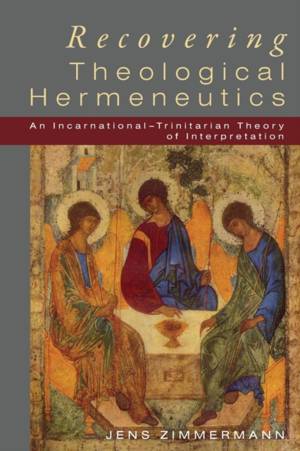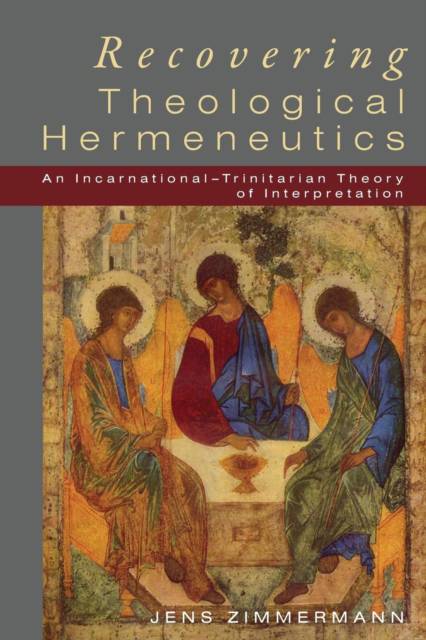
Bedankt voor het vertrouwen het afgelopen jaar! Om jou te bedanken bieden we GRATIS verzending (in België) aan op alles gedurende de hele maand januari.
- Afhalen na 1 uur in een winkel met voorraad
- In januari gratis thuislevering in België
- Ruim aanbod met 7 miljoen producten
Bedankt voor het vertrouwen het afgelopen jaar! Om jou te bedanken bieden we GRATIS verzending (in België) aan op alles gedurende de hele maand januari.
- Afhalen na 1 uur in een winkel met voorraad
- In januari gratis thuislevering in België
- Ruim aanbod met 7 miljoen producten
Zoeken
Omschrijving
Endorsements: "This book is a careful, historical demonstration of the way in which hermeneutics was secularized yet continues to borrow on the capital of Christian theology. By exposing the problems inherent in secular hermeneutics and correcting the histories of philosophical hermeneutics on record, Zimmerman points a way forward beyond secular hermeneutics. This is a bold project that should be read not only by theologians but, more especially, by those philosophers working in the wake of Heidegger, Gadamer, Derrida, and Levinas. This book is an excellent addition to any course in philosophical hermeneutics." -- James K. A. Smith, author of The Fall of Interpretation "In Recovering Theological Hermeneutics, Zimmerman offers a compelling argument for the claim that hermeneutics must be theological if it is to be truly hermeneutical. Through a fair and careful reading of premodern and postmodern hermeneutical theorists, he shows their true kinship. Building appreciatively (though not uncritically) upon insights of Gadamer, Levinas, and Derrida, Zimmerman draws from Bonhoeffer and Balthasar to construct an incarnational hermeneutic. Zimmerman provides us with a deeply Christian view of human understanding--one that results in nether hermeneutical triumphalism nor hermeneutical despair but affirms understanding as relational, historical, and ultimately based on God's revelation." --Bruce Ellis Benson, author of Graven Ideologies: Nietzsche, Derrida, and Marion on Modern Idolatry "Recovering Theological Hermeneutics is an important contribution to hermeneutics. Zimmerman provides not only a detailed and convincing historical analysis but also an outline of theological hermeneutics that is ethical, incarnational, and thus, in the best sense of the word, truly evangelical. Far from naively idealizing a premodern point of view, Zimmerman convincingly works through modern and postmodern thought. In so doing, he shows the often-overlooked potential of the premodern Christian tradition without ignoring its difficulties and shortcomings--a challenge to both modern and postmodern theology and, indeed, philosophy." --Holder Zaborowsky, Albert-Ludwig University of Freiburg About the Contributor(s): Jens Zimmermann holds a Canada Research Chair at Trinity Western University. He is coauthor of The Passionate Intellect (2006), and coeditor of Being Human, Becoming Human: Dietrich Bonhoeffer and Social Thought (2010).
Specificaties
Betrokkenen
- Auteur(s):
- Uitgeverij:
Inhoud
- Aantal bladzijden:
- 352
- Taal:
- Engels
Eigenschappen
- Productcode (EAN):
- 9781610976442
- Verschijningsdatum:
- 1/02/2012
- Uitvoering:
- Paperback
- Formaat:
- Trade paperback (VS)
- Afmetingen:
- 150 mm x 226 mm
- Gewicht:
- 453 g

Alleen bij Standaard Boekhandel
+ 122 punten op je klantenkaart van Standaard Boekhandel
Beoordelingen
We publiceren alleen reviews die voldoen aan de voorwaarden voor reviews. Bekijk onze voorwaarden voor reviews.









